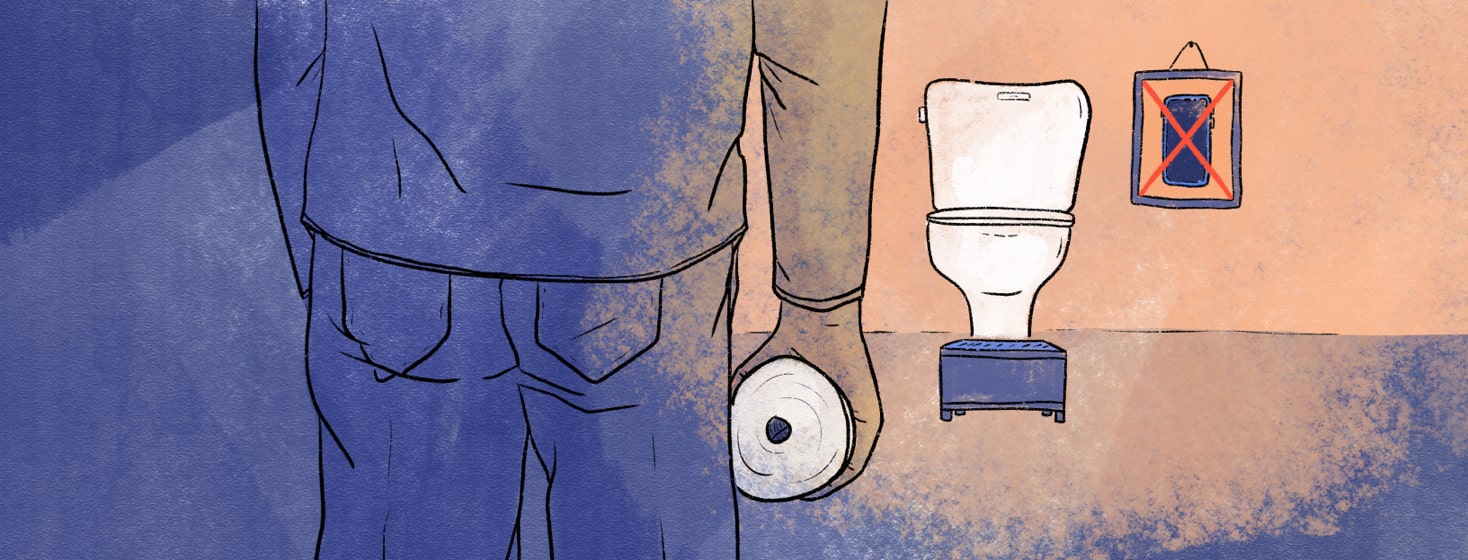How to Get a Handle on Your Hemorrhoids with IBS
Everybody poops, but for some, it's harder than others. If you are struggling with the strain or experiencing rectal bleeding, you may have hemorrhoids. These small lumps occur when the veins within the anus or lower rectum get inflamed, causing irritation and pain. To help prevent hemorrhoid formation, consider adopting these lifestyle habits.1
Why do hemorrhoids happen?
While it may sound like an "old person" problem, hemorrhoids are more common than you think and are a frequent concern among my clients with IBS. The strain associated with chronic constipation and diarrhea may increase the risk of developing hemorrhoids. Other factors include hydration, fiber intake, age, pregnancy, and obesity.2,3
How to prevent hemorrhoids
Rise to the occasion
Making small changes to your bathroom habits can do wonders for preventing hemorrhoids. When you are sitting on a toilet, your weight distribution puts a significant amount of pressure on your colon, leading to increased swelling in the veins within your rectum. End the strain on your bathroom game by elevating your legs during your routine. Whether it's a box, stack of books, or small stool, 6 inches can make all the difference.
Get in and get out!
Although it sometimes gets confused as a place to unwind or multitask, the bathroom has a different ultimate purpose. Sitting for extended periods on the toilet can add unwanted pressure to the veins in your derriere. Put down the phone, tablet, or reading material and get down to business.
If your bowels aren't ready, keep calm and carry on with your day. Then, return to the bathroom when the time feels right. While you may prefer to relieve yourself from the comfort of your own home, good things take time! Trying to avoid the situation while out and about won't do your body any favors. It may make passing a bowel movement more challenging later.
Know your triggers
Constipation is common among people with IBS and it may increase your risk for developing hemorrhoids. Luckily, various lifestyle changes can help.
Add more fiber
Most Americans do not consume enough fiber. This mighty plant-based compound helps add bulk to your stool while bettering gastrointestinal motility. Fiber also helps improve mealtime satiety, microbiome diversity, and immune function, contributing to your overall health. It's recommended to consume 25 grams/day for women and 38 grams/day for men per day. Increase your fiber intake gradually to avoid unwanted gastrointestinal distress such as cramping, bloating, and gas.4
Stay hydrated
Staying hydrated throughout the day is an often-neglected way to improve your bowel regularity. Water helps lubricate the body and softens stool to make going to the bathroom pain-free. People's individual needs depend on their physical environment, daily exertion, dietary habits, and more. Aim to consume an amount of fluid that leads to pale-yellow urine. Try not to drink too fast.
Embrace exercise
Staying active does wonders for your health from head to toe, including your bowels! However, excessive weightlifting can cause unwanted strain on your rectum, increasing the risk of hemorrhoids. If you are new to the exercise game, stay within your limits and gradually increase your intensity to avoid unwanted distress.
Know your food triggers
Are certain foods leading to constipation or diarrhea? Keep track of what you're eating and what causes symptoms. Then find food substitutes and mind-body strategies to help avoid extreme changes in your bowel movements.
Follow-up with your doctor
If you are experiencing rectal bleeding or other abnormal gastrointestinal symptoms, it's best not to wait to seek help. Contact your physician and gastroenterologist. Don't forget to ask for a referral to see a registered dietitian.

Join the conversation